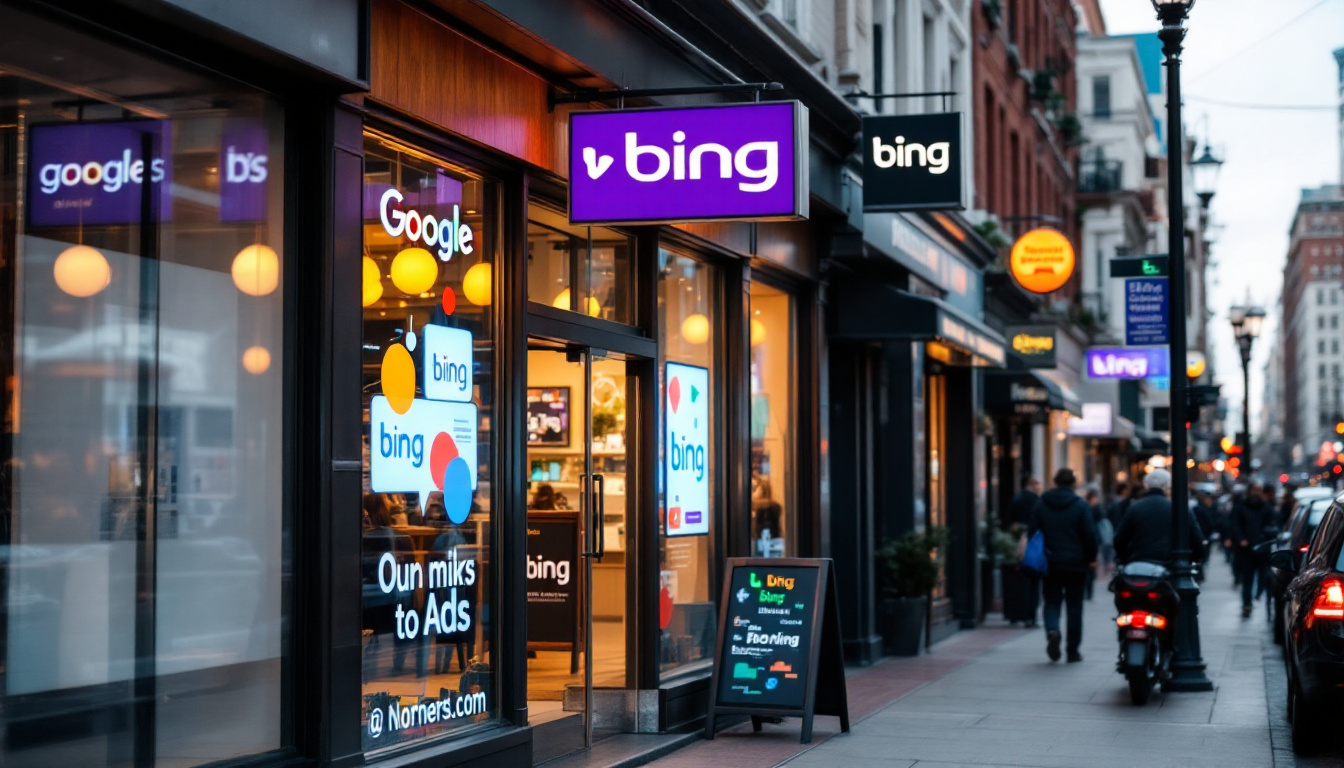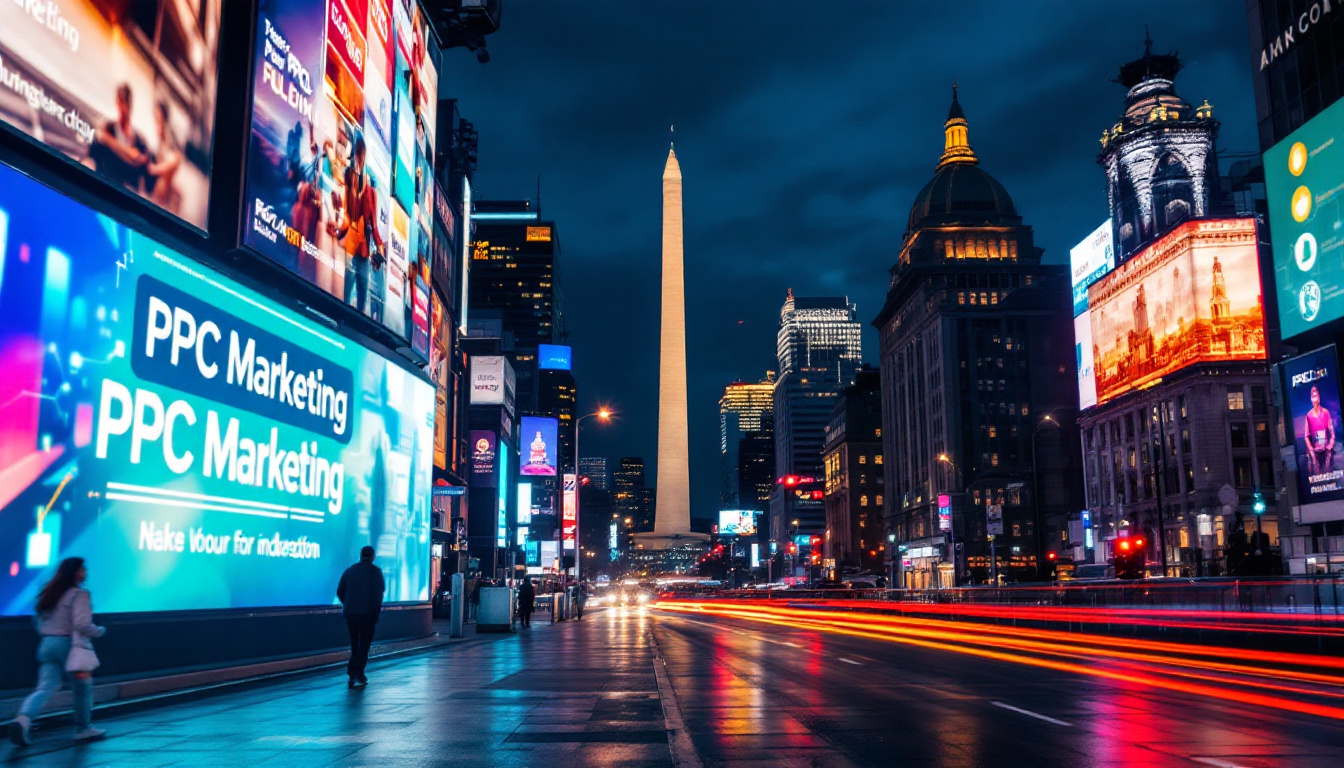What Washington, DC Businesses Should Know About Google Ads Updates

In today's digital landscape, keeping up with changes in online advertising is crucial for businesses looking to enhance their visibility and engagement in the market. Google Ads, a key player in the digital advertising world, frequently updates its features and strategies. This article will delve into the latest updates to Google Ads, their implications for your PPC strategy, ways to adapt your campaigns, the increasing role of automation, and the vital takeaways for businesses in Washington, DC.
Understanding the Latest Google Ads Updates
Google Ads updates occur regularly, introducing new features and modifying existing functionalities to improve user experience and advertising effectiveness. The latest updates have focused on enhancing ad formats, implementing advanced bidding strategies, and improving reporting capabilities.

For instance, Google has rolled out enhanced ad options, enabling advertisers to create more engaging and visually appealing ads. The introduction of new ad metrics and performance insights empowers businesses to monitor their ad effectiveness more closely and adjust their strategies promptly. These metrics not only help in tracking engagement rates but also provide deeper insights into customer behavior, allowing advertisers to tailor their campaigns to better meet the needs of their target audience.
Moreover, with privacy concerns becoming more prevalent, Google is adapting its advertising practices to ensure compliance with regulations while still providing precise targeting options. Understanding these updates is crucial for businesses that want to leverage Google Ads to its fullest potential. As privacy regulations evolve, advertisers must navigate these changes carefully to maintain their competitive edge while respecting user privacy.
How Updates Impact Your PPC Strategy
Every update from Google has the potential to shift how you approach your pay-per-click (PPC) strategy. With the introduction of new ad formats, for instance, businesses may find opportunities to experiment with creative ad designs that capture attention effectively. The ability to utilize video ads and interactive formats can significantly enhance engagement, making it essential for marketers to stay ahead of the curve and adopt these innovations.
New bidding strategies, such as Smart Bidding, require adaptations in budgeting and campaign management. While these automated strategies can optimize bids in real time, understanding their mechanics and setting them up correctly will be essential to capitalize on their benefits. Additionally, businesses should consider the implications of seasonality and market fluctuations when implementing these strategies, as they can drastically affect ad performance and ROI.
Additionally, as Google refines targeting options and offers new reporting metrics, businesses must re-evaluate their KPIs and define new success criteria that align with the latest features. Ignoring these updates can lead to missed opportunities or suboptimal performance of your campaigns. By continuously analyzing the performance data and adjusting their strategies accordingly, businesses can ensure they are maximizing their advertising spend and reaching their desired audience effectively.
Adapting Campaigns to New Google Features
Adapting your campaigns to align with new Google Ads features is a vital step for maintaining effectiveness. One way to do this is by regularly reviewing and testing your ad formats. Consider experimenting with responsive search ads (RSAs), which allow Google to mix and match headlines and descriptions to create the most effective ad combinations. This flexibility can lead to improved click-through rates and conversions, as the ads are tailored to the search queries of potential customers.
Another key adjustment involves leveraging the updated reporting tools. Google Ads now incorporates AI-driven insights to help businesses understand which parts of their campaigns are performing well and which are not. Regularly utilizing these insights will enable businesses to make data-driven decisions when refining their campaigns. Furthermore, integrating these insights with other analytics tools can provide a comprehensive view of customer journeys, enhancing the overall strategy.
Finally, it is crucial to stay informed about any changes to audience targeting. The introduction of new audience segments and targeting capabilities means that Washington, DC businesses can hone their strategies to reach the most relevant potential customers. By utilizing custom audiences and in-market segments, advertisers can ensure their messages resonate with users who are most likely to convert, thereby increasing the efficiency of their campaigns. Keeping abreast of these developments will not only enhance targeting precision but also foster a deeper understanding of evolving consumer preferences.
The Role of Automation in Modern PPC Campaigns
Automation is increasingly at the forefront of modern PPC campaigns, facilitating efficient management of ad spend and optimization. Google's automation features, particularly in Smart Bidding and Performance Max campaigns, allow businesses to leverage machine learning for real-time decision-making.

These tools can significantly decrease the manual workload while increasing campaign performance. However, the key is to strike a balance between automation and manual oversight. While automation can handle many tasks, understanding campaign specifics remains crucial for long-term strategy and adjustments.
It’s also important to note that while automated features can enhance efficiency, they require foundational knowledge of Google Ads to implement effectively. Understanding how automation incorporates into your overall marketing strategy ensures that it supports business objectives rather than hindering them.
Moreover, the integration of automation into PPC campaigns doesn’t just streamline processes; it also opens up new avenues for creativity and innovation. Advertisers can focus on crafting compelling ad copy and engaging visuals, knowing that the technical aspects are being handled by sophisticated algorithms. This shift allows for a more strategic approach to advertising, where the emphasis can be placed on storytelling and brand messaging, rather than being bogged down by the minutiae of bid adjustments and keyword management.
Key Takeaways from Recent Google Ads Changes
As Google continues to evolve its advertising platform, there are several key takeaways for businesses based in Washington, DC:
- Stay Informed: Regularly check for updates and changes to Google Ads, ensuring that your campaigns utilize the latest features.
- Test and Adapt: Be ready to test new ad formats and strategies regularly. What worked yesterday may not be the best choice today.
- Embrace Automation Wisely: Use automation tools offered by Google, but maintain a strong understanding of your campaigns to provide necessary oversight.
- Analyze Performance: Take advantage of new reporting tools to track performance effectively, making data-driven decisions to adjust your strategy.
- Focus on Privacy: With increasing scrutiny around data privacy, ensure that your advertising practices comply with current regulations while effectively reaching your target audience.
In addition to these takeaways, businesses should consider the importance of audience segmentation and personalized advertising. As automation tools become more sophisticated, they can analyze user behavior and preferences to deliver highly targeted ads. This means that businesses in Washington, DC, can tailor their messaging to resonate more deeply with specific demographics, enhancing engagement and conversion rates. By leveraging insights gained from automated analytics, advertisers can refine their audience targeting and create more relevant ad experiences.
Furthermore, the rise of automation in PPC campaigns also emphasizes the need for continuous learning and adaptation. The digital advertising landscape is dynamic, with new trends emerging regularly. Companies that invest in training their teams on the latest tools and techniques will be better positioned to capitalize on these changes. This proactive approach not only helps in maximizing the effectiveness of PPC campaigns but also fosters a culture of innovation within the organization.

As a Google Ads expert, I bring proven expertise in optimizing advertising campaigns to maximize ROI.
I specialize in sharing advanced strategies and targeted tips to refine Google Ads campaign management.
Committed to staying ahead of the latest trends and algorithms, I ensure that my clients receive cutting-edge solutions.
My passion for digital marketing and my ability to interpret data for strategic insights enable me to offer high-level consulting that aims to exceed expectations.









